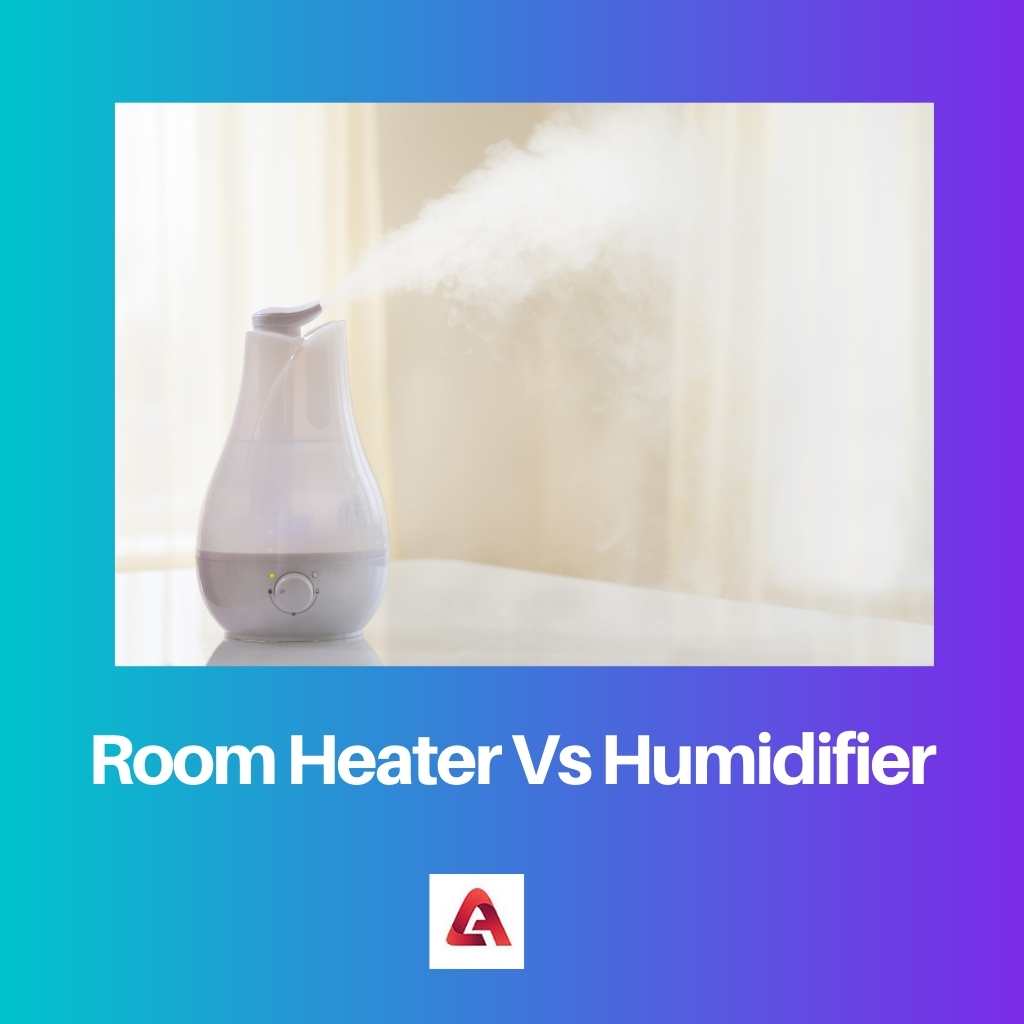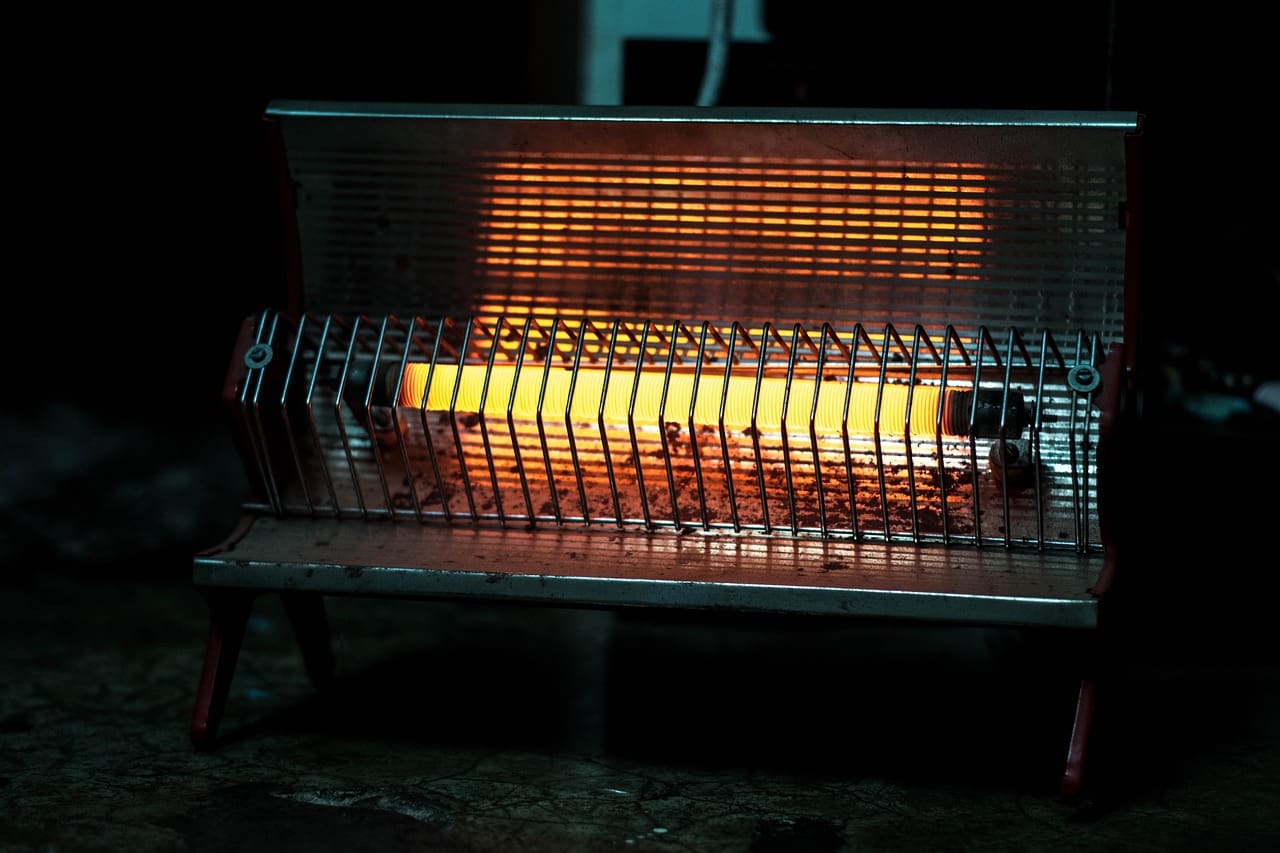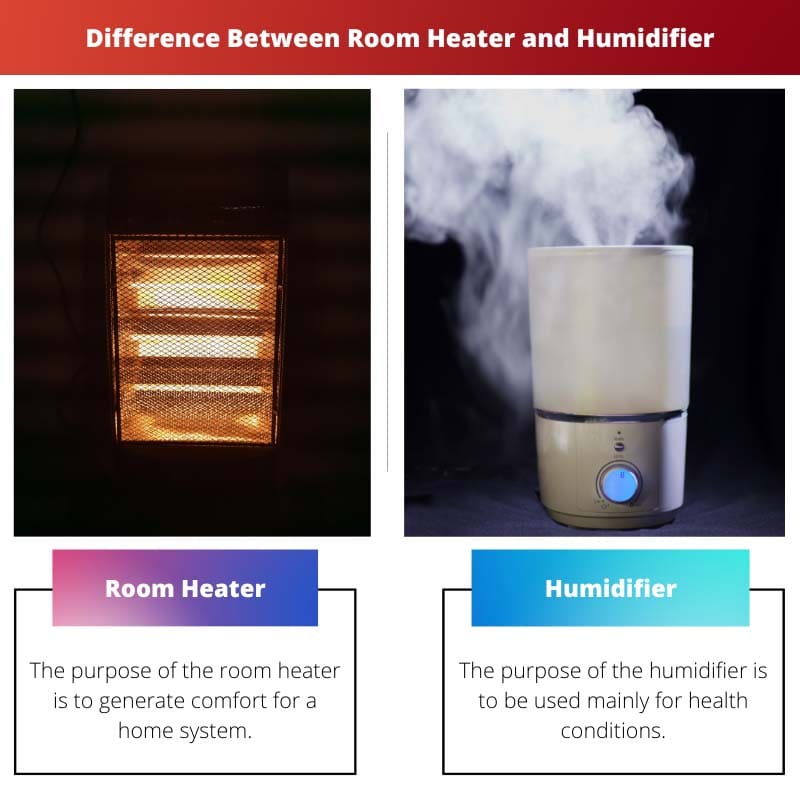People love their houses. They buy different devices and machines to improve their home technology and find comfort during different seasons.
Room heaters and humidifiers are some of the essential and must-have devices that help you get through the hard days. Both devices have features and come in different models.
Key Takeaways
- Room heaters provide warmth by increasing the air temperature, while humidifiers add moisture to maintain humidity levels.
- Room heaters are ideal for colder environments, whereas humidifiers are beneficial in dry climates.
- Humidifiers can alleviate respiratory issues and dry skin, while room heaters can help reduce energy bills by targeting specific areas for heating.
Room Heater Vs Humidifier
A room heater is a device that increases the temperature of a room, while a humidifier adds moisture to the air. While a room heater is used during colder months to keep a room warm, a humidifier can be used to alleviate dry air and respiratory issues making the room airy.

A room heater is an electric appliance that is available in most households. In the winter season, it provides comfort for the body by eliminating cool air.
This device heats up, converting thermal energy into kinetic energy and blowing the hot air. Customized heaters are available according to room size.
A humidifier is an appliance that raises the amount of high humidity. Humidifiers are used to treat coughing, runny noses, and dryness or irritation of the skin caused by winter conditions.
People are concerned about their health and to give instant relief, they use these kinds of devices during winter.
Comparison Table
| Parameters of Comparison | Room Heater | Humidifier |
|---|---|---|
| Purpose | The purpose of the room heater is to generate comfort for a home system. | The purpose of the humidifier is to be used mainly for health conditions. |
| Also Known As | Room heater devices are known as “space heaters” in many areas. | Humidifier devices are known as “vaporizers” in many areas and have many types of them. |
| Suitable For | It is suitable for usage in chilly locations and for providing additional heat during the winter months. | It is suitable to increase the water content of the environment in dry locations throughout the winter. |
| Central System | Room heaters are not considered a central heating system for the complete building. | Some humidifiers are considered to be a central system for the complete system. |
| Cost | Even portable room heaters are not economically friendly. | Humidifiers types are portable, cost-effective, and are available in stores. |
What is Room Heater?
A room heater is a space heater, and it produces thermal air around the enclosed areas. It comes in different sizes and models. These days, portable models are also available in stores.
These room heaters produce heat for small areas as well as large areas. Even in office environments, heaters are fixed during the cold seasons to produce warmth.
There are a variety of room heaters that can be run on electric power, fuel, or natural gas sources.
Room heaters include convection heaters, radiant heaters, etc. The other heater type is the resistive electric heater, which generates hot air with the help of electrical energy. The infrared radiation from the radiant heaters is also suitable for houses.
Even though it is a primary source for producing hot air, it is not used as a central heating element or system in larger buildings. It is considered a supplementary thermal device rather than a central device.
The device is placed in the corner of a small or large room according to room size and need. It’s a perfect heating solution in cold weather.
With the help of this specialized appliance, some hospitals keep their patients in comfort and support them.

What is Humidifier?
Humidifier devices are used in a single room or a whole building to produce highly moisturized air. In the environment, it contains dry air.
With the help of this device, it makes it easier to breathe and works especially well for people with respiratory ailments. It makes it easier to breathe and works especially well for people with respiratory ailments.
It is also used to comfort people who are suffering from common ailments such as colds, fever, and other illness. There are many categories of humidifiers that are available to fit both small, medium, and large rooms.
For small rooms, point-of-use humidifiers are used. For the entire house, furnace humidifiers are used. The most common kinds of humidifiers on the market are impeller, mist type, impeller, ultrasonic, and evaporative humidifiers.
To propel water into the surrounding air, impeller humidifiers use an elevated disc with holes that rotate at peak speed. They are inefficient and noisy, but they are affordable.
Ultrasonic humidifiers produce water droplets by ultrasonic vibrations, which can be seen as a cool mist or are completely invisible.
Evaporative humidifiers circulate air through a diffuser and absorb moisture as it passes over all the corners of the room area.

Main Differences Between Room Heater and Humidifier
- Humidifiers are handy to carry around the place, while room heaters are not as handy to carry around.
- A humidifier blows cool, wet air into the room, whereas a room heater blows hot, dry air into small or larger rooms.
- Room heaters keep a significant space warm, but they don’t control the moisture level. On the other hand, humidifiers are the best way to control and generate moist air.
- Room heaters come in fuel, gas, and electric model types, whereas humidifiers come as electronic appliances.
- Humidifiers are used for indoor comfort, whereas room heaters are used both in outdoor and indoor comfort.

- https://www.atlantis-press.com/proceedings/icmeit-16/25860418
- https://www.osti.gov/etdeweb/biblio/5810914
